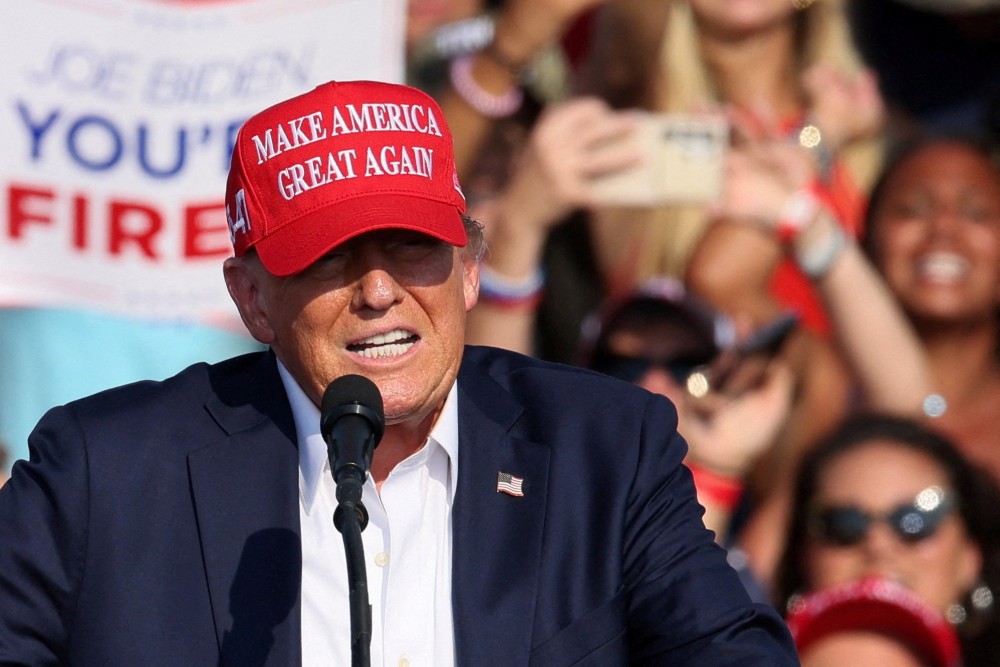
By Kate Scanlon
WASHINGTON (OSV News) — The federal judge overseeing the criminal case alleging former President Donald Trump mishandled classified government documents after leaving the White House dismissed the charges against him on July 15, expressing concern about the legality of the appointment of the special counsel investigating him. Experts at Catholic law schools indicated to OSV News the decision may ultimately require the Supreme Court to clarify constitutional questions about the Justice Department’s use of the special counsel office.
Trump, the presumptive Republican presidential nominee, was previously indicted in the case concerning his alleged mishandling of classified documents, in which he was accused of unlawfully retaining classified government documents at his Mar-a-Lago estate in Florida after leaving the White House, and not cooperating with officials’ attempts to retrieve those documents.
Judge Aileen Cannon ruled that the appointment of special counsel Jack Smith was unconstitutional.
“The Court is convinced that Special Counsel’s Smith’s prosecution of this action breaches two structural cornerstones of our constitutional scheme — the role of Congress in the appointment of constitutional officers, and the role of Congress in authorizing expenditures by law,” Cannon wrote.
Smith is widely expected to appeal the ruling.
In an interview with OSV News, Mark Healy Bonner, a professor at Ave Maria School of Law in Florida, argued “the executive branch cannot appoint officials without either presidential appointment and Senate advice and consent, which did not happen here.”
Although the ruling was not based on the Supreme Court’s recent decision in Trump vs. United States — in which the high court found that presidents have immunity from criminal prosecution as it relates to core constitutional acts of their office, presumptive immunity for official acts, but none for unofficial acts — that ruling offered some foreshadowing to Cannon’s dismissal, Bonner said.
A concurring opinion by Justice Clarence Thomas in that case said, “It is difficult to see how the Special Counsel has an office ‘established by Law,’ as required by the Constitution. When the Attorney General appointed the Special Counsel, he did not identify any statute that clearly creates such an office.”
Bonner said Thomas’ opinion was that “Jack Smith, may be basically just a private citizen with no legal authority,” and indicated he may want the high court to consider that argument.
But Mark Osler, a professor at the University of St. Thomas School of Law in Minneapolis, told OSV News he was surprised by the dismissal.
“Since the expiration of the independent counsel statute in 1999 after the Ken Starr investigation of Bill Clinton, the special counsel mechanism has been used for a variety of sensitive investigations that require a measure of remove from the DOJ’s normal practices and the ability to focus intensely on particularly important cases,” Osler said. “If the Supreme Court takes this case and agrees with Judge Cannon, we will lose an important tool to address some of the most sensitive cases on the federal docket. That would leave it to our dysfunctional Congress to try to revive something like the independent counsel legislation.”
Osler said Smith’s likely appeal could eventually be considered by the Supreme Court.
Cannon’s opinion was primarily focused on the legalities of special counsel appointments, but did not address the merits of the evidence provided of the criminal conduct Trump and his co-defendants are accused of committing.
Trump celebrated the ruling in a post on his social media platform, arguing the charges were coordinated by the “Democrat Justice Department” since he is Biden’s election rival.
Senate Majority Leader Chuck Schumer, D-N.Y., wrote on X, formerly known as Twitter, “This breathtakingly misguided ruling flies in the face of long-accepted practice and repetitive judicial precedence.”
“It is wrong on the law and must be appealed immediately,” Schumer said. “This is further evidence that Judge Cannon cannot handle this case impartially and must be reassigned.”
The news of the dismissed charges came on the first day of the Republican National Convention, during which Trump formally became the party’s nominee for president, and just days after Trump was rushed offstage by Secret Service agents after shots were fired during a campaign rally July 13 in Butler, Pennsylvania. Trump revealed shortly afterward that he was shot with a bullet that tore through the upper part of his right ear.
Law enforcement officials said the incident is being investigated as an assassination attempt. They identified the suspected shooter as Thomas Matthew Crooks, a 20-year-old man from Bethel Park, Pennsylvania, but said any possible motive was still under investigation. Moments after Crooks fired several rounds, a Secret Service sniper shot and killed him.
